Coconut oil is a plant‑based fat extracted from the meat or milk of the coconut fruit. At cooler temperatures it's solid; when heated or at higher temperatures, it turns liquid. It's widely used in cooking, skin care, hair care, and even dog products. However, if you don't any and you are wondering what you can use instead, here are the Best Coconut Oil Substitutes that you can try, for various applications.
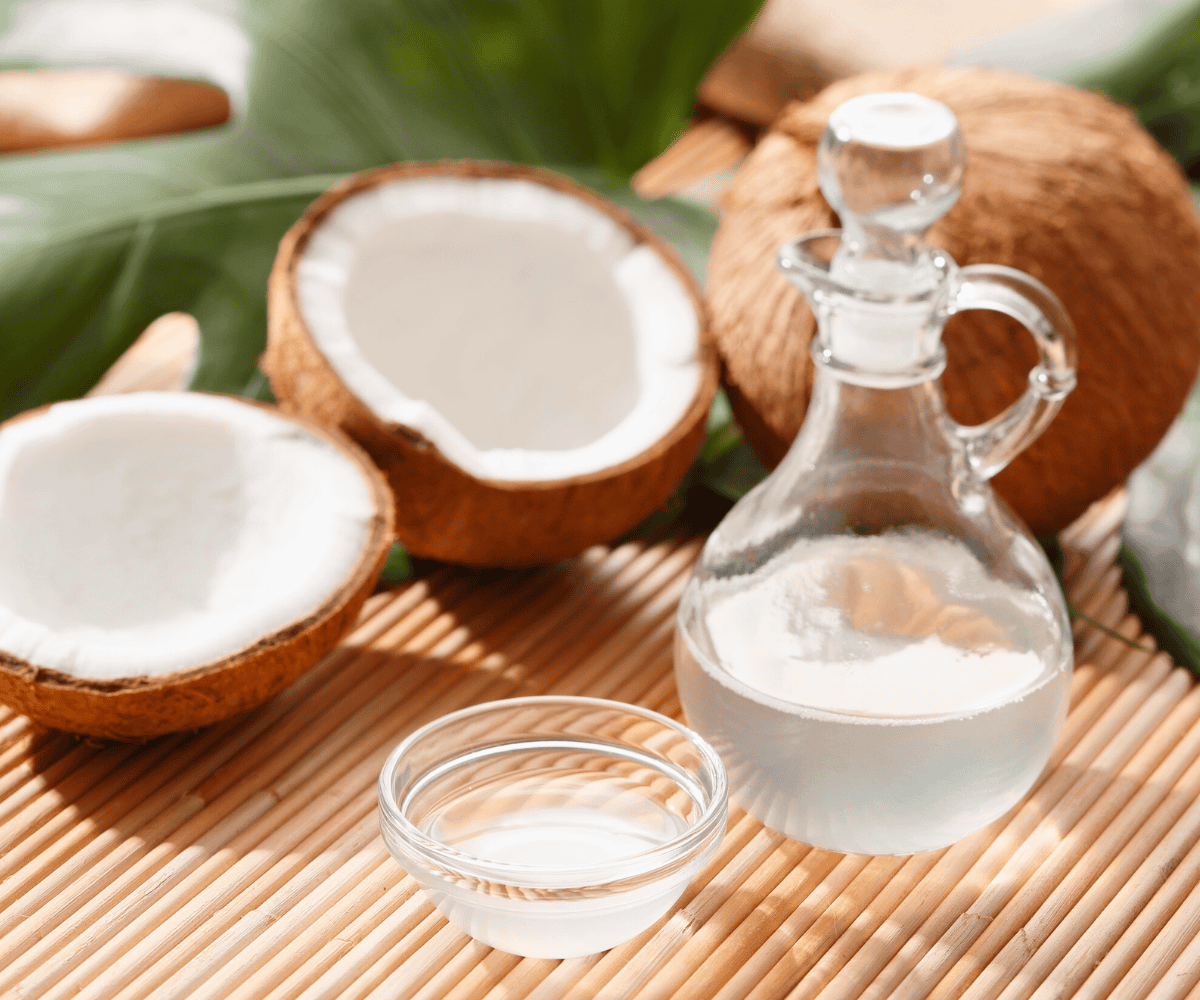
Coconut Oil in Cooking
Coconut oil has long been a staple in Asian cooking, particularly in regions like South India, Sri Lanka, Thailand, Indonesia, and the Philippines.
In these cultures, coconut oil is more than just a cooking fat,it's an essential flavor component and health ingredient.
In Indian cuisine, it's used to temper spices or cook vegetables, and it forms the base of flavorful curries in Kerala and coastal regions.
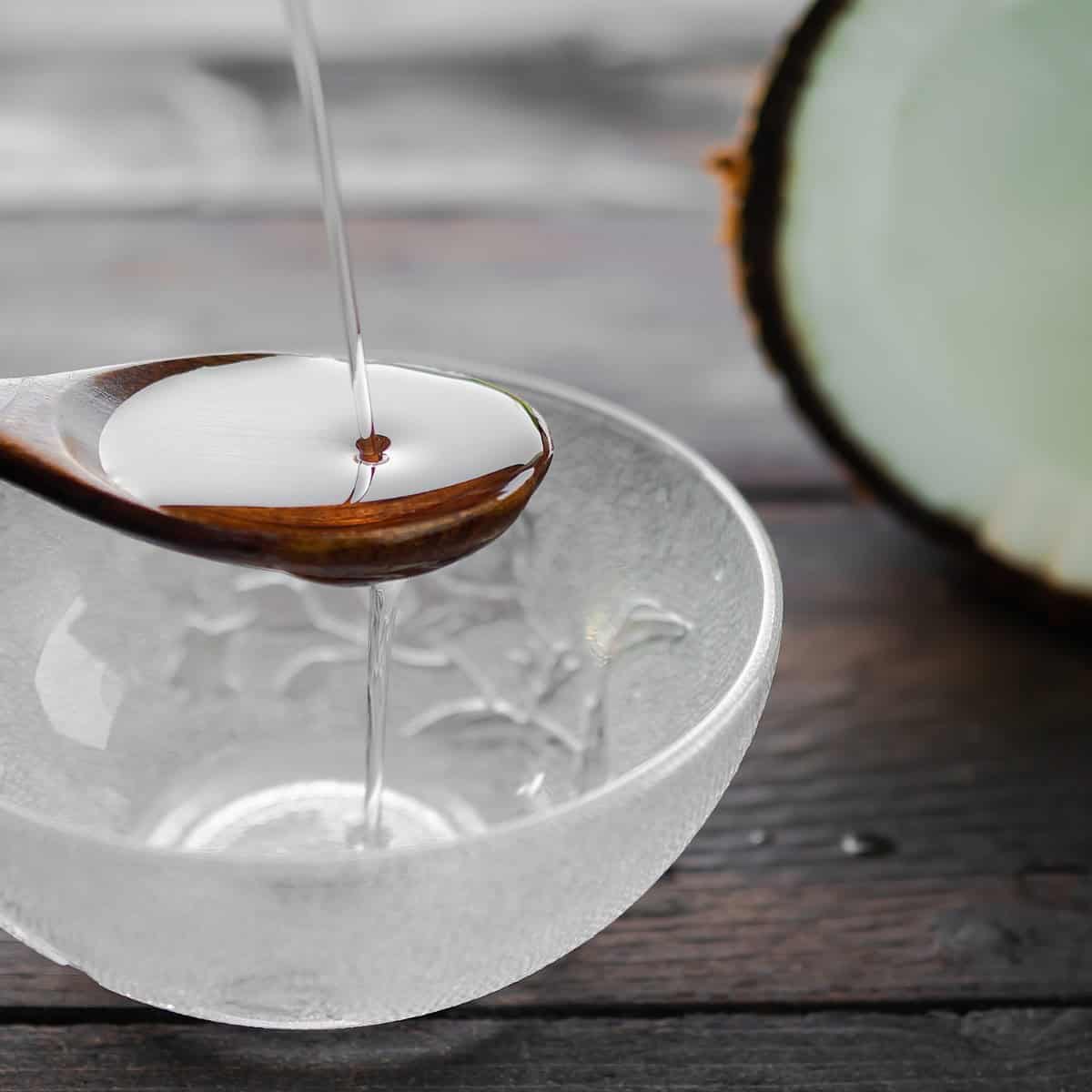
In Thai and Indonesian cooking, it lends a subtle coconut aroma to noodle dishes, stir-fries, and soups. Filipino desserts and baked goods often rely on coconut oil for moisture and richness, especially when dairy isn't traditionally used.
When looking for a coconut oil substitute in these types of recipes, it's important to consider both flavor and function, choosing oils or fats that complement regional spices and cooking methods.
Best Substitutes For Coconut Oil In Cooking
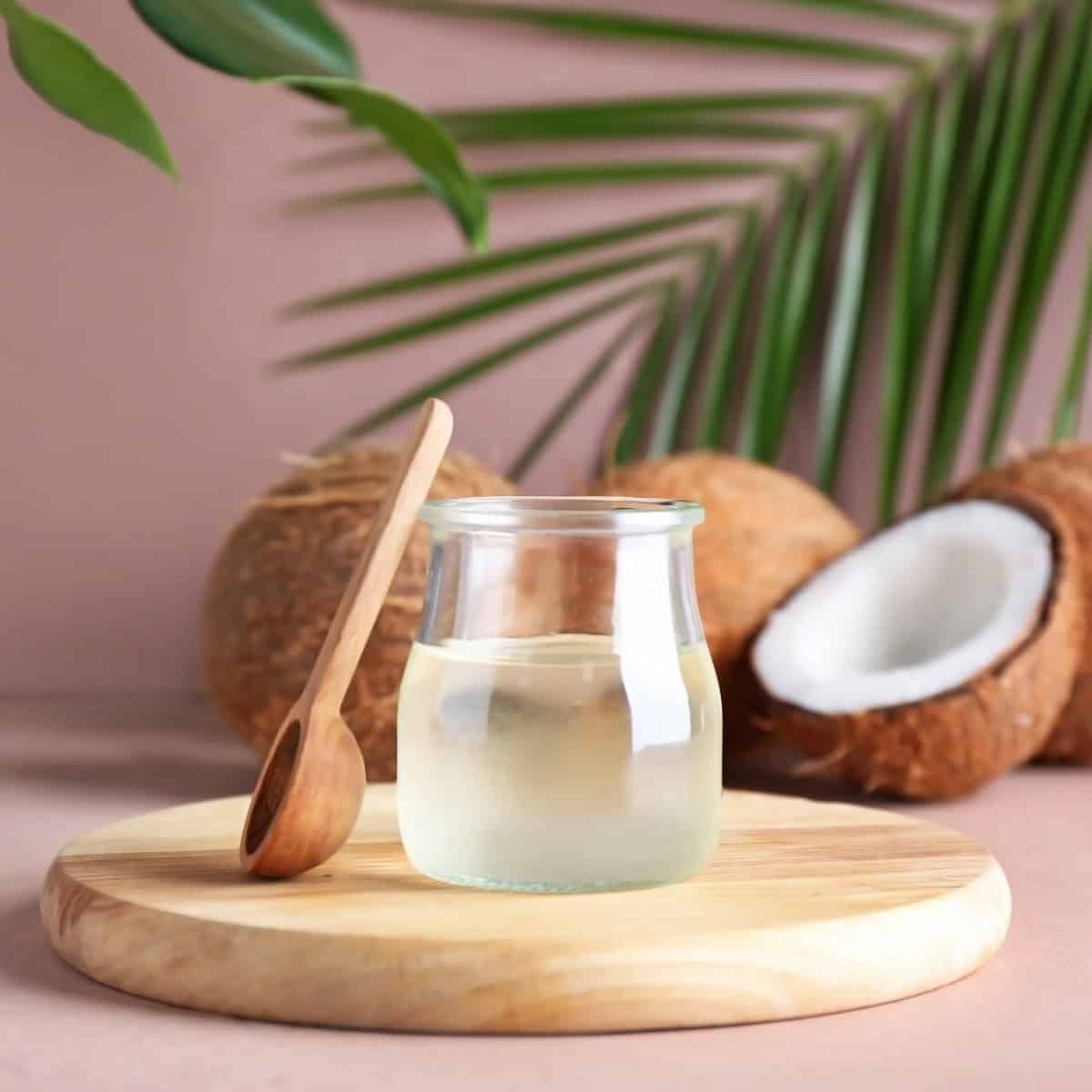
When it comes to cooking, finding a substitute for coconut oil is usually straightforward, especially in savory dishes.
Most oils can be swapped in easily, with the main difference being flavor. Neutral oils like canola or vegetable oil won't impact the taste much, while stronger oils like olive or sesame can add their own distinct character.
However, in baking, coconut oil plays a bigger role in texture and moisture, so choosing the right substitute, like butter or avocado oil, can make a noticeable difference in the final result.
1. Avocado oil
Avocado oil is an excellent substitute for coconut oil in both cooking and baking.
It has a high smoke point (around 520°F/270°C), making it ideal for frying, sautéing, and roasting.
With a mild, buttery flavor, avocado oil won't overpower your dish and works well in savory recipes.
In baking, use a 1:1 ratio to replace coconut oil. Keep in mind that avocado oil is pricier and slightly thicker, so it may alter texture slightly in delicate recipes like cakes but works well for most general uses.
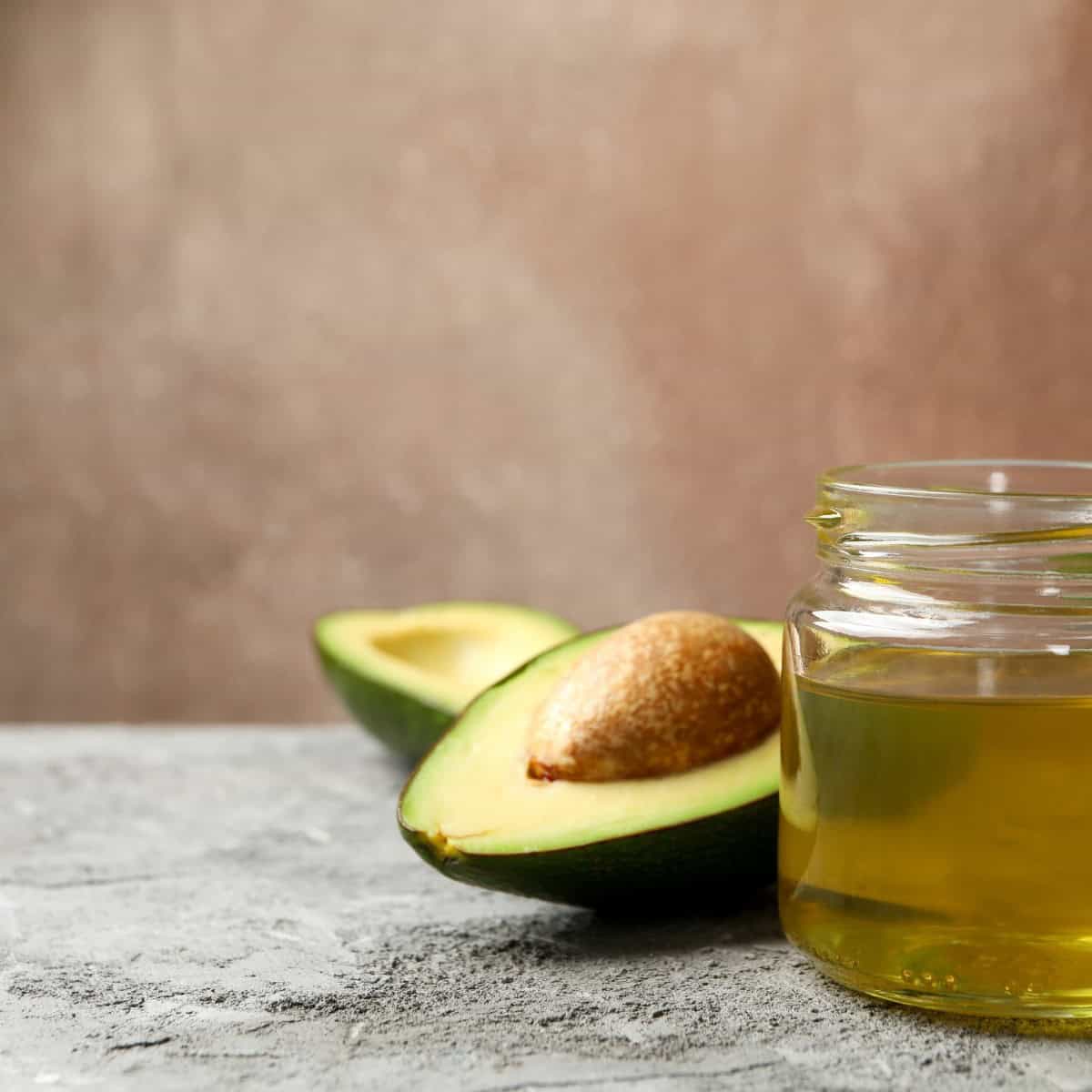
2. Olive Oil
Olive oil, particularly extra virgin olive oil, is a healthy and flavorful substitute for coconut oil. Its strong, peppery flavor suits Mediterranean and savory dishes like stir-fries, roasted vegetables, and dressings.
It has a lower smoke point (around 375°F/190°C), so it's better suited for low to medium-heat cooking.
In baking, it can replace coconut oil in a 1:1 ratio, though it may alter the taste of sweet recipes. Use light olive oil for a milder flavor in desserts.
Olive oil is high in monounsaturated fats and antioxidants, making it a heart-healthy choice for everyday cooking.

3. Sunflower Oil
Sunflower oil is a neutral-tasting, versatile oil that makes a good coconut oil replacement, especially in recipes where you don't want the fat to influence the flavor.
With a high smoke point (around 440°F/225°C), it's suitable for high-heat cooking like frying and searing.
In sweet baked goods, sunflower oil provides moisture and texture similar to coconut oil. Use it in a 1:1 ratio.
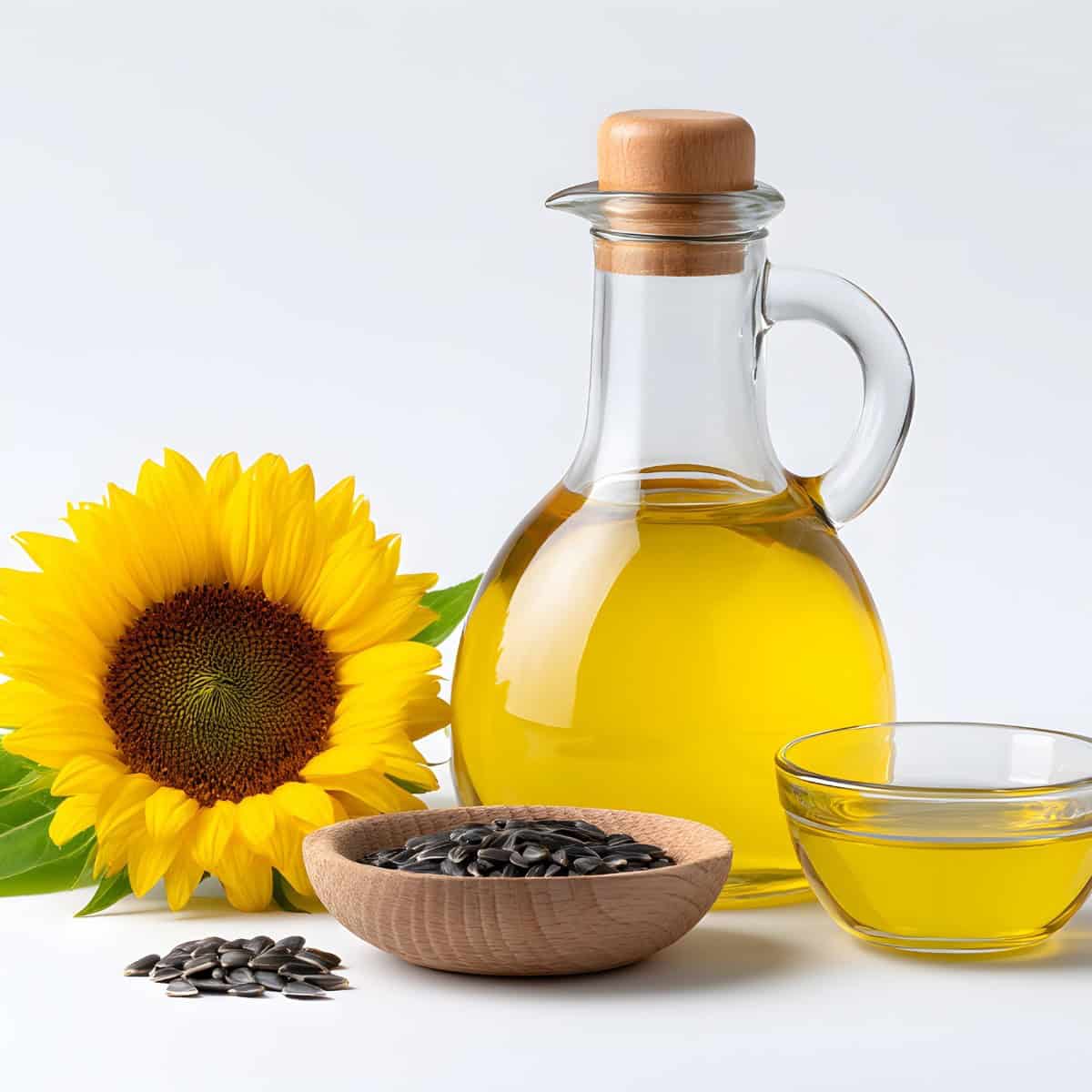
4. Sesame oil
Sesame oil is a flavorful and versatile substitute for coconut oil, particularly in savory cooking.
With a medium-high smoke point (about 410°F/210°C), it's suitable for stir-frying, sautéing, and roasting.
Toasted sesame oil has a bold, nutty flavor best used as a finishing oil, while light sesame oil has a milder taste and works well for general cooking, especially in Asian recipes.
In baking, it's less common but can be used in small amounts to add depth to cookies or bread.
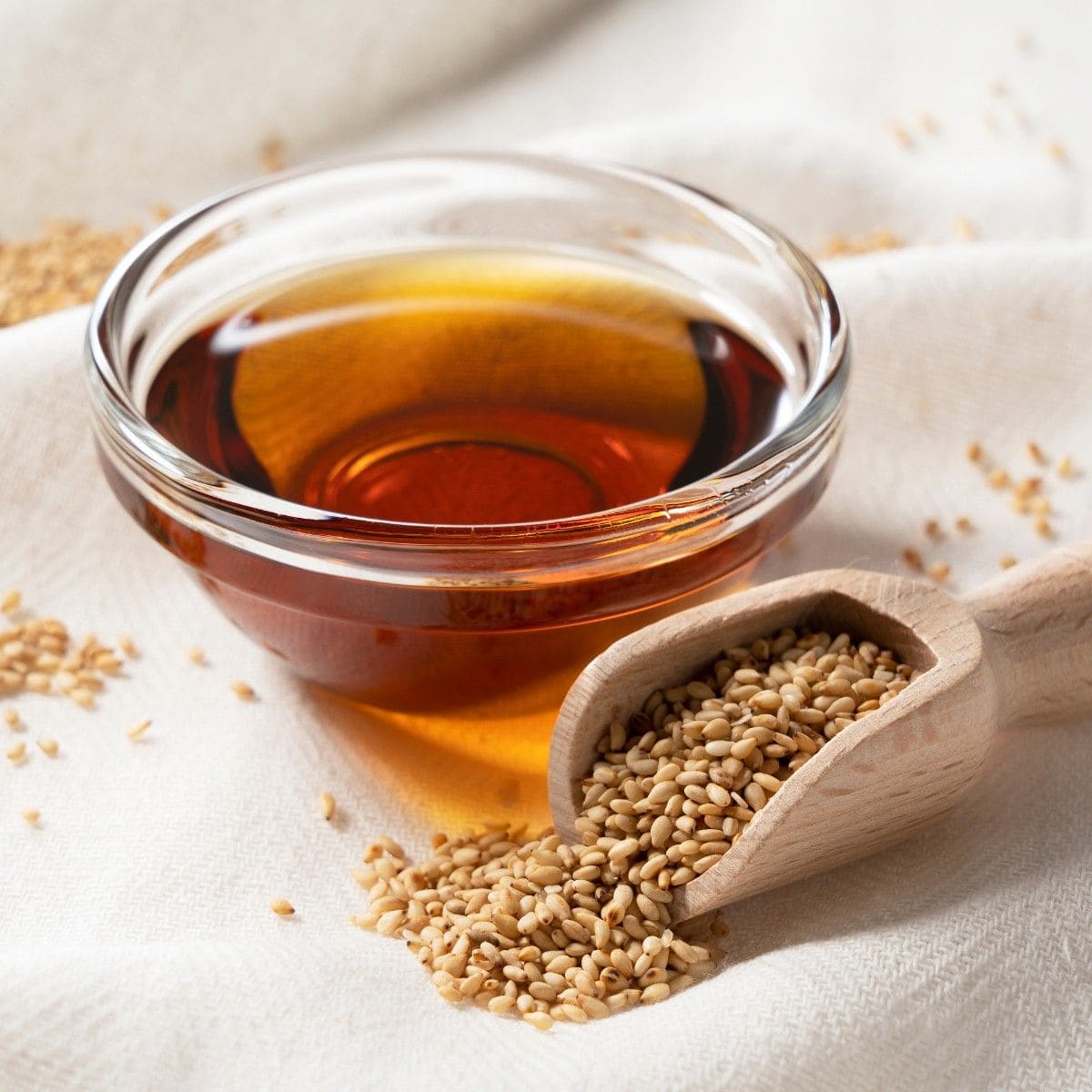
5. Vegetable oil
Vegetable oil is a convenient and widely available substitute for coconut oil, especially in recipes that require a neutral flavor and moist texture.
It has a high smoke point (around 400-450°F/204-232°C), making it ideal for frying and sautéing.
It blends seamlessly in baked goods like cakes, muffins, and brownies. Use it as a 1:1 replacement.

6. Canola Oil
Canola oil is an affordable alternative to coconut oil. It's light in flavor, has a smooth texture, and works well in a variety of dishes from sautéing to baking.
Its smoke point is around 400°F/204°C, suitable for most cooking techniques. It can be used as a 1:1 substitute for coconut oil.
In baking, it maintains moisture without altering flavor, making it ideal for cakes and muffins. It's also commonly used in dressings, marinades, and grilling recipes due to its neutral profile.

7. Grapeseed Oil
Grapeseed oil is a light, neutral-flavored oil that performs well as a coconut oil replacement, particularly in medium to high-heat cooking and baking.
With a smoke point of around 420°F/216°C, it's suitable for stir-frying, roasting, and grilling.
In baking, it lends a subtle richness without changing the flavor of the dish. Use it in a 1:1 ratio.
Its neutral flavor makes it a good choice when you want the ingredients-not the fat-to shine.

8. Almond Oil
Almond oil brings a delicate nutty aroma and subtle sweetness, making it a great substitute for coconut oil in both cooking and baking, particularly in desserts.
It has a moderately high smoke point (around 430°F/221°C), allowing it to handle sautéing and roasting. Use a 1:1 substitution ratio.
In baked goods, almond oil provides moisture and a light, rich texture, perfect for cookies, muffins, and cakes. However, those with nut allergies should avoid it. For recipes needing a neutral oil, almond oil may add a subtle but noticeable nutty essence.
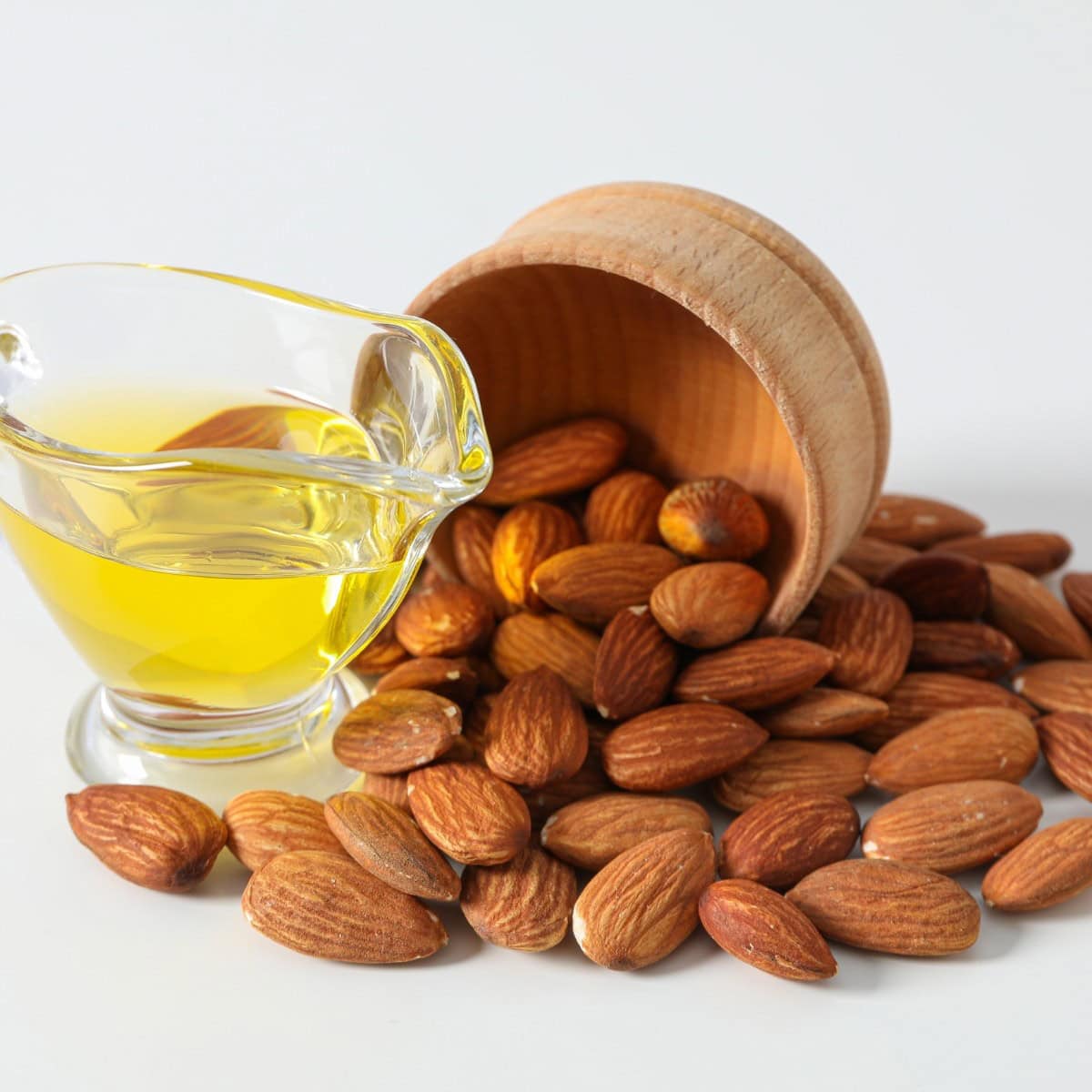
9. Vegan butter
Vegan butter is an easy 1:1 substitute for coconut oil, particularly in baking. It adds richness and enhances flavor in baked goods like cookies, cakes, and pastries.
Vegan butter is made from oils like canola or avocado and works similarly with a comparable texture and melting point.
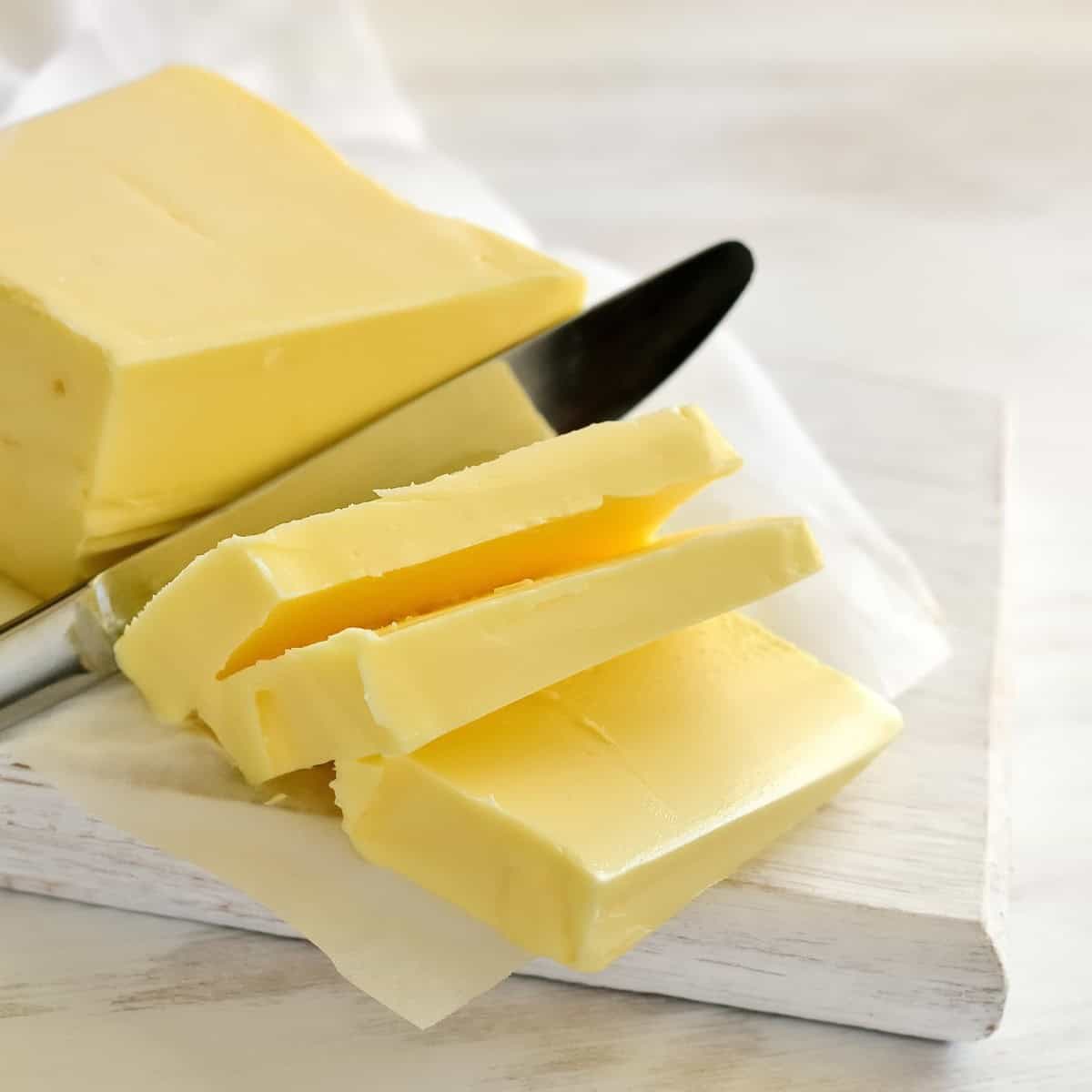
Specialty Substitutions
Coconut oil substitute for chocolate / melting chocolate
Often coconut oil is used to thin chocolate (e.g. for coating or ganache). Instead, use melted cacao butter or cocoa butter, or light nut butter or neutral oil like grapeseed oil.
Coconut oil substitute for granola
Granola recipes typically call for melted coconut oil to bind oats, nuts, seeds. You can substitute any type of oil: olive oil, avocado, rapeseed, vegetable oil. For vegan granola, melted vegan butter also works.
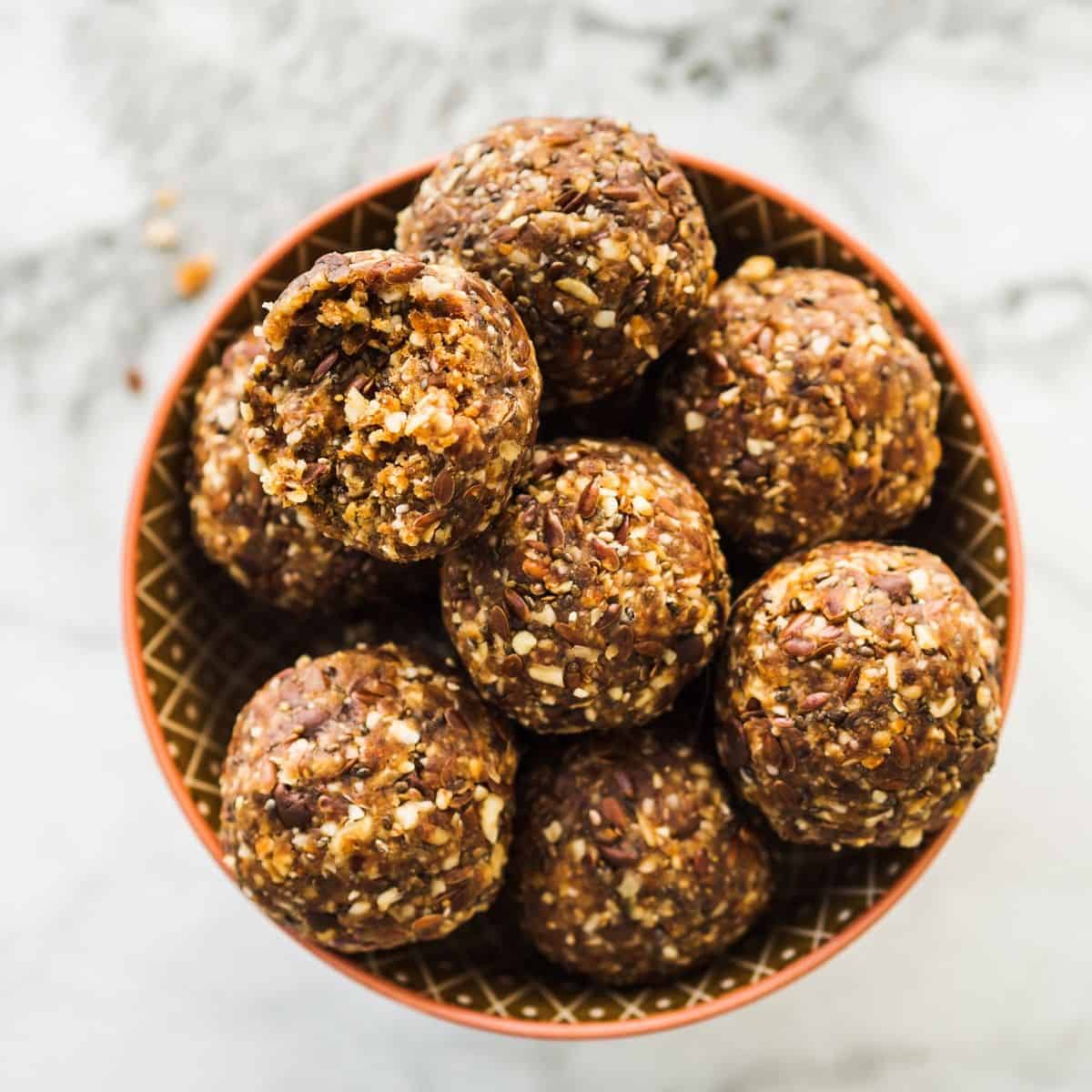
Substitute for coconut oil in protein balls
In protein or energy ball recipes, coconut oil helps firm and hold shape. Nut butters (almond, peanut, cashew), tahini, or even coconut butter (for coconut flavor) can replace it. Expect slightly different texture; consider chilling to set.
Beauty & Pet Uses: Skin & Hair
Coconut oil is a popular natural ingredient known for its deep moisturizing properties. In skin care, it's commonly used as a body moisturizer and soothing treatment for dry or irritated skin. For hair, it helps reduce protein loss, add shine, fight dandruff, and deeply condition dry or damaged strands.
Substitute for coconut oil for skin

For moisturizing skin, massage, DIY body scrub, there are many altenratives you can try:
Shea Butter: A rich, nourishing butter that deeply moisturizes and soothes dry or irritated skin.
Jojoba Oil: A lightweight oil that mimics natural skin sebum and helps balance oil production.
Sweet Almond Oil: A gentle, vitamin-rich oil ideal for softening and calming sensitive or dry skin.
Argan Oil: A non-greasy, antioxidant-rich oil that hydrates and improves skin elasticity.
Olive Oil: A deeply moisturizing oil best for dry skin, though potentially pore-clogging for some.
Avocado Oil: A nutrient-dense oil that heals and nourishes flaky or inflamed skin.
Grapeseed Oil: A light, fast-absorbing oil great for oily or acne-prone skin.
Cocoa Butter: A thick, emollient butter ideal for moisturizing and reducing scars or stretch marks.
Aloe Vera Gel: A soothing, non-oily gel perfect for calming irritation and hydrating sensitive skin.
Coconut oil substitute for hair

If you're looking for coconut oil substitutes for hair care, several natural alternatives offer similar benefits.
Argan oil is a great option, rich in vitamin E and antioxidants that nourish and add shine without feeling greasy.
Jojoba oil closely mimics the scalp's natural oils, making it ideal for moisturizing and balancing.
Olive oil deeply conditions and strengthens hair, especially for dry or damaged strands.
For a lighter option, grapeseed oil works well for fine hair and helps reduce frizz. Each of these oils can be used as a leave-in treatment or hair mask, depending on your hair's needs.
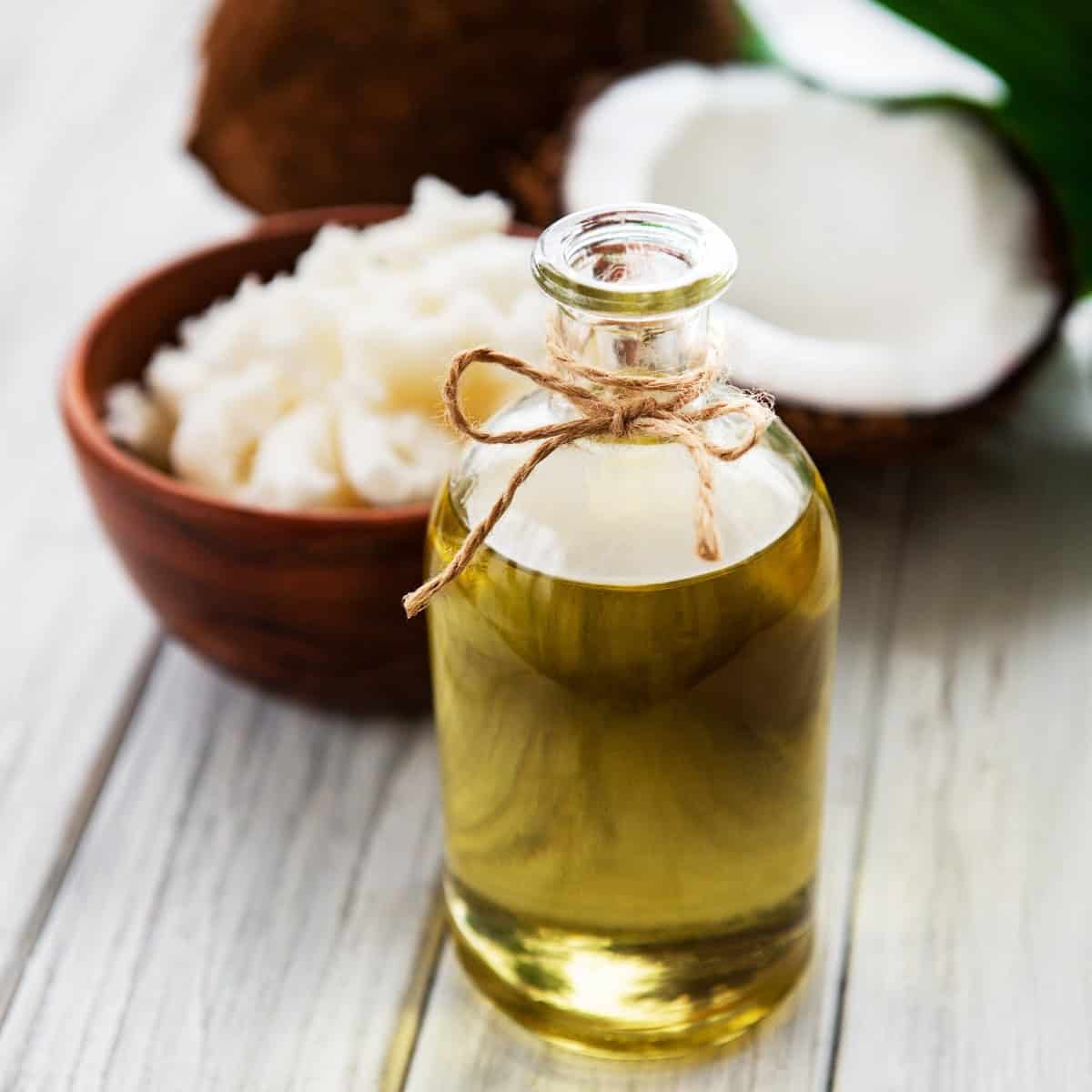
FAQs
What can I use instead of coconut oil for cooking?
You can use olive oil, avocado oil, vegetable oil or vegan butter as substitutes. Each offers different flavor profiles and smoke points, so choose based on the recipe and desired taste.
What are the best coconut oil substitutes for baking?
For baking, use avocado oil, olive oil, vegan butter, canola oil, or applesauce (for a healthier alternative). These mimic the moisture and fat content that coconut oil provides in baked goods.
What can replace coconut oil in hair care?
Argan oil, jojoba oil, olive oil, and grapeseed oil are excellent substitutes. They help moisturize, reduce frizz, and promote healthy hair without the heaviness of coconut oil.
What is a good alternative to coconut oil for skin?
Shea butter, almond oil, and cocoa butter are great options for moisturizing and nourishing the skin. Jojoba oil is also ideal for sensitive or acne-prone skin.
Are these substitutes suitable for people with coconut allergies?
Yes, most plant-based oils and butters like olive oil, avocado oil, and shea butter are safe alternatives for those allergic to coconut. Always check labels to ensure there are no coconut derivatives.
Final Thoughts
Whether you're baking, making granola, pressing chocolate, creating beauty or pet products, or just avoiding coconut flavor or allergen, there's a perfect coconut oil substitute for your needs:
Oils (avocado, vegetable, sunflower, grapeseed, canola) for high‑heat cooking and neutral flavor.
Butter, vegan butter, ghee, shortening when you need a solid fat in baking.
Applesauce or purees + oil for moist, lower‑fat vegan baking.
Nut/seed butters or cocoa butter for no‑bake recipes or chocolate binding.
Babassu oil or plant‑based oils/butters for skincare, hair care, and animal uses.
Always consider smoke points, flavor profile, desired texture, and dietary constraints-then use the chart above as your guide. Each substitute brings its own benefits, and with the thoughtful swap, you'll maintain delicious results without coconut oil.

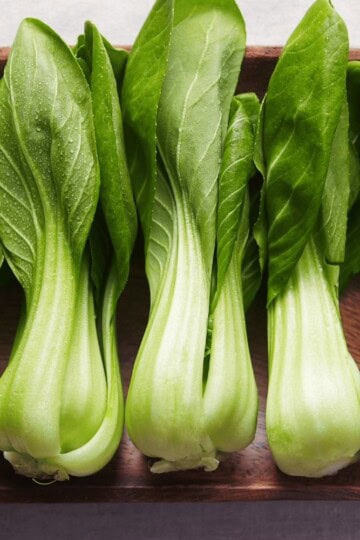
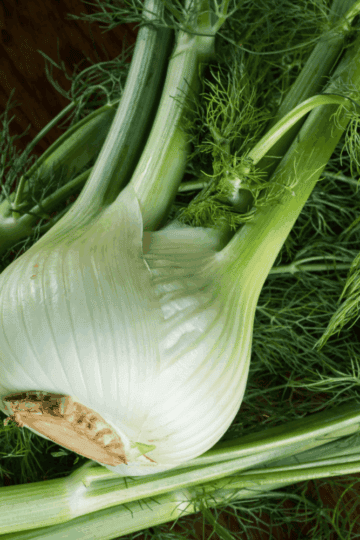
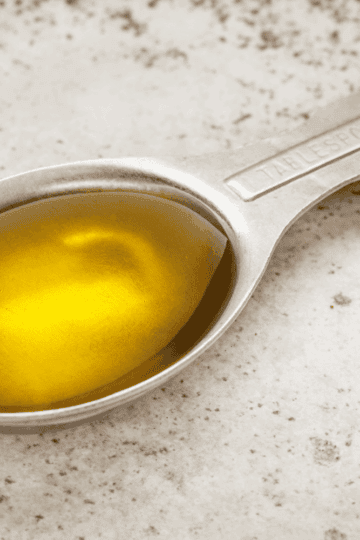

Leave a Reply